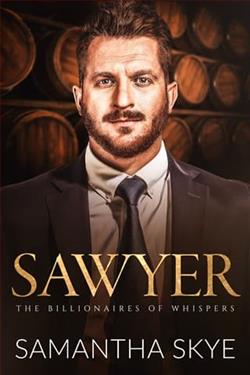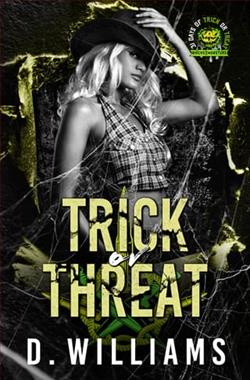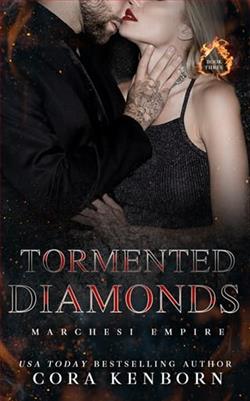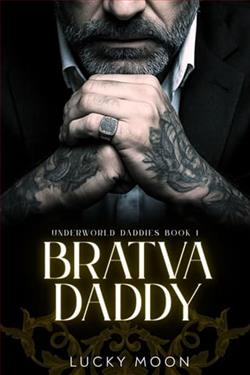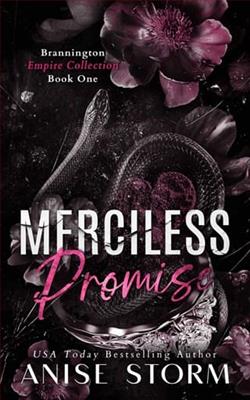Page 11 of Strangers in Time
Charlie waited until Macklin returned to her shop and then hurried back in time to see Oliver take off his jacket, hang it on a peg, lift the hinged countertop, and disappear through the curtained doorway.
Charlie squatted there, trying to decide what to do. He could leave here and purchase himself shoes and a coat, and Gran a hat because hers was disintegrating on her head. And fresh spectacles because she told Charlie she had the cataracts. And Charlie could take her around to the pub near them and they could have a meal prepared by someone else for once.
Yet how would he explain to Gran where the paper pounds and coin had come from? Granwasold, and there were things he could get away with, but she wasn’t stupid.
But there was one thing Charlie needed to know first, which was why he had come back here.
He slid over to the door and, wary of the tinkling bell, slowly opened it just enough to slide his nimble fingers through and stifle the ringing before it could commence.
He ventured near the till. Next to it was a framed photo he hadn’t noticed the previous night. The woman pictured was quite pretty, with large, intelligent brown eyes, full lips, and an angular face, which all promised goodness in abundance, if features could actually manage that. The clothes she wore were like what Charlie’s mother had worn. Oliver’s wife, maybe?
There was a black gauzy material wrapped around the frame. He gingerly touched it. The correct term came to him from some distant part of his brain.
Funeralcrepe.
This person had died.
He eased by the framed picture and noted the coat hanging on the peg. It was as threadbare as his. The old felt hat next to it was stained and carried several tears and holes.
Charlie felt a thickening lump form in his throat. He could sense poverty when he was looking at it. And the man had walked halfway across London to return Charlie’s clothes tag, and probably inquire about his missing money and book. And he had risked his life to save others and earned the George Medal.
He slowly withdrew the pilfered paper and coins from his pocket and looked down upon them. Swimming across his mind were visions of shoes and a coat for himself, and a hat and specs for his gran, and a meal free of watery cabbage soup. They abounded in neat, linear frames of his imagination. And then, like loose sand in a tide, they were washed from his thoughts. Even thieves, at least those like Charlie, had principles. And empathy for others also badly off.
He only took from those who had spares. This man clearly did not.
Charlie placed the money next to the till and stepped away. He would have returned the biscuits, too, but he’d eaten them all. And there was also the book. He reached into his pocket and placed it next to the money.
“You weren’t home earlier.”
Charlie turned. Ignatius Oliver was standing in the curtained doorway.
A nimble and lightning-quick Charlie leapt to the door, his hand on the knob.
Oliver made no move to stop him; he simply glanced at the money on the counter and then looked at Charlie.
“Why?” Oliver asked.
Instead of answering, Charlie said, “So the ‘I’ on the glass is for Ignatius, then?”
“No, it’s for Imogen,” he said, surprising Charlie. “My wife. This was her shop. I—” he looked around as though seeing the space for the first time “—I was never much of a reader. I just took it over… when.” His gaze traveled to the funeral-creped photo.
“Never knew no bloke named Ignatius.”
“Saint Ignatius of Antioch. I was named for him.”
“What’d he do to be a saint?” asked Charlie with genuine curiosity.
“He was fed to wild beasts as his martyrdom.”
“Wild beasts! Who woulda done that?”
“People who did not agree with him. It happens, you know. Awful things occur all the time. This war is a prime example. Do you go by Charles?”
“No, just Charlie. You sell lots of books, do you?”
“Not many, no. If folks have spare shillings, it probably won’t be going for books. I have sold a number of booktokensas part of a national scheme, so that helps. Rather good idea, actually. Yet not that many have been redeemed. I think people are rather… tired. But maybe that will turn around as the war continues to move in a positive direction.”
“I guess your wife liked books.”








